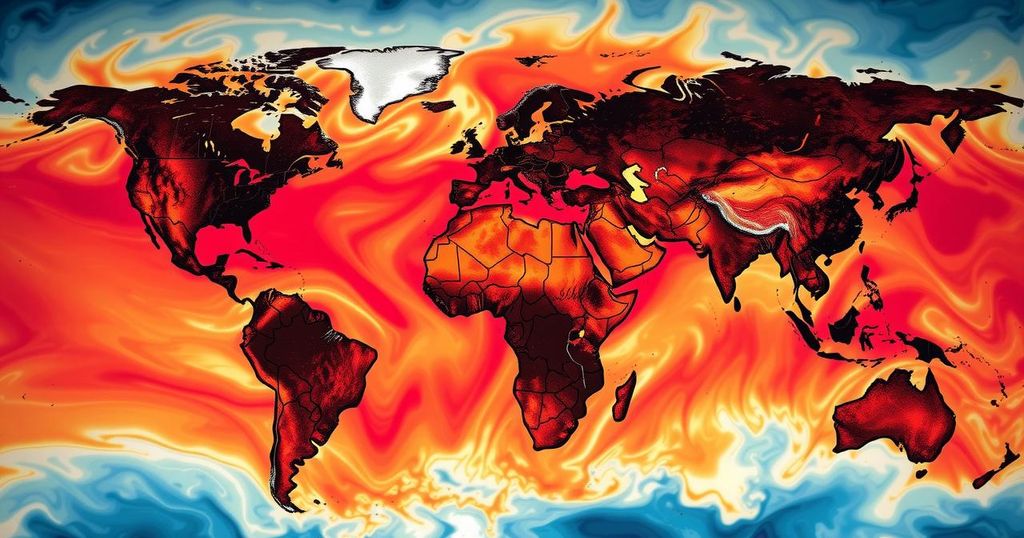In 2024, global temperatures exceeded 1.5 degrees Celsius above pre-industrial levels, marking the hottest year on record, as confirmed by C3S. Climate change has led to severe consequences, including extensive wildfires and floods across various regions. Political willingness to combat emissions is declining, with some leaders dismissing climate science amidst rising environmental crises.
In 2024, global temperatures peaked at 1.6 degrees Celsius above the pre-industrial levels (1850-1900), marking it as the hottest year ever recorded. This unprecedented milestone was confirmed by the European Union’s Copernicus Climate Change Service (C3S), which highlighted the pressing impacts of climate change and its contribution to rising temperatures. Notably, this statistic surpasses the previous record set in 2023 by over 0.1 degrees Celsius, indicating a troubling trend of escalating heat.
Despite the 2015 Paris Agreement that aimed to limit temperature increases to 1.5 degrees, the world faces increasingly severe climate repercussions, evident in wildfires, severe flooding, and heatwaves affecting multiple regions globally. Fires in California resulted in fatalities and massive destruction, while areas like Bolivia and Venezuela also suffered from devastating blazes, and torrential floods wreaked havoc in Nepal, Sudan, and Spain. These environmental changes emphasize the urgency to address climate change and the effects of greenhouse gas emissions.
While 2024 marked an alarming record, the political resolve to mitigate greenhouse gas emissions appears to be diminishing. Incoming political leaders, such as US President-elect Donald Trump, have openly questioned the consensus on climate change, labeling it as a hoax, which poses additional risks to global climate agreements and initiatives. As the atmosphere continues to warm, the extent of water vapor has reached new heights, exacerbating the severity of storms and rainfall throughout the world.
The observation that global temperatures were surpassing 1.5 degrees Celsius above pre-industrial levels highlights the critical state of climate change as of 2024. The 2015 Paris Agreement was established to combat global warming by limiting climate changes; however, the latest data suggest that the commitments made under this accord are at risk due to increasing emissions and a lack of political will. Every year since the 2013 record has ranked among the hottest, reinforcing the urgency of addressing climate-related issues before they result in further catastrophic impacts. As the experience of severe weather patterns intensifies globally, it necessitates a reevaluation of current policies and practices to safeguard the planet’s future.
The year 2024 has set a harrowing precedent, as it stands as the hottest year on record, exceeding 1.5 degrees Celsius in global average temperatures. The data underscores the urgency to address climate change and implement effective strategies to reduce greenhouse gas emissions, as current trends suggest further degradation of ecological and societal health. It is imperative for global leaders to foster political will and commitment to climate action, ensuring that the goals outlined in the Paris Agreement are upheld to mitigate future climate disasters. Without decisive action, the trajectory of climate change may lead to dire consequences for future generations.
Original Source: www.rfi.fr






